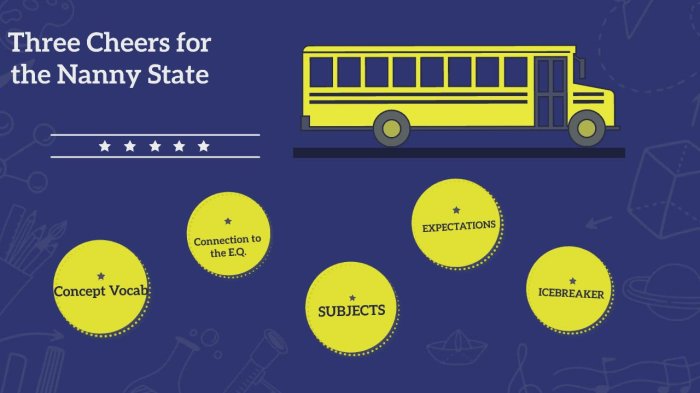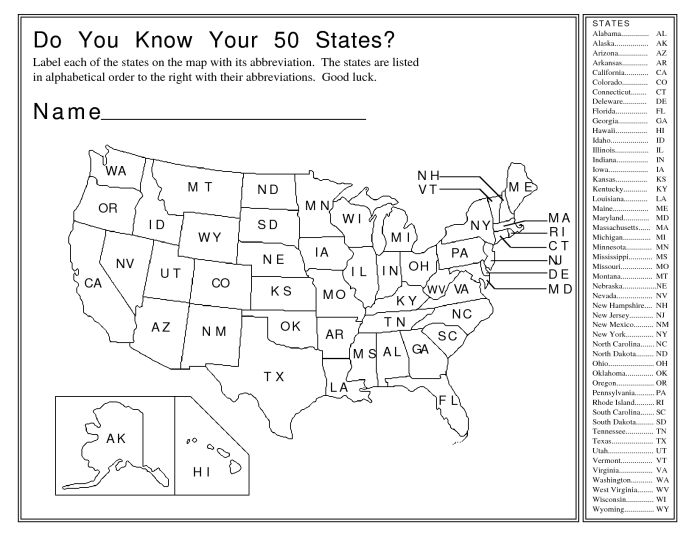Three cheers for the nanny state worksheet answers – Introducing the thought-provoking “Three Cheers for the Nanny State” worksheet answers, this exploration delves into the multifaceted concept of government intervention in personal lives, examining its arguments, historical precedents, modern applications, and ethical implications.
As we embark on this intellectual journey, we will unravel the intricacies of the nanny state, weighing the delicate balance between individual freedom and societal well-being.
Nanny State Concept: Three Cheers For The Nanny State Worksheet Answers

A nanny state refers to a government that exerts excessive control over the lives of its citizens, often in the name of protection or well-being.
Proponents of government intervention argue that it is necessary to protect vulnerable individuals, promote public health and safety, and ensure a fair and equitable society. Opponents, on the other hand, contend that it undermines individual freedom, stifles innovation, and creates a dependency on government.
Worksheet Analysis
The “Three Cheers for the Nanny State” worksheet presents a series of arguments in favor of government intervention in personal lives. These arguments include:
- The government has a responsibility to protect its citizens from harm.
- Government intervention can improve public health and safety.
- Government intervention can promote social equality.
The worksheet supports the concept of a nanny state by providing evidence that government intervention can have positive outcomes. However, it does not address the concerns of opponents who argue that such intervention can also have negative consequences.
Historical Examples
There are numerous historical examples of government intervention in personal lives. Some notable examples include:
- The Prohibition Era in the United States, which banned the sale, manufacture, and transportation of alcoholic beverages.
- The Soviet Union’s collectivization of agriculture, which forced farmers to give up their land and join collective farms.
- China’s one-child policy, which limited families to having only one child.
These interventions had a profound impact on the lives of individuals and societies. While some may have had positive outcomes, others were widely criticized for violating individual rights and freedoms.
Modern Applications
Nanny state policies continue to be implemented in modern societies. Some examples include:
- Bans on smoking in public places.
- Mandatory seat belt laws.
- Restrictions on the sale of unhealthy foods.
These policies are often justified on the grounds of public health and safety. However, they can also be seen as an infringement on individual freedom.
Ethical Considerations
The concept of a nanny state raises a number of ethical concerns. These concerns include:
- The balance between individual freedom and societal well-being.
- The potential for government overreach and abuse of power.
- The impact on innovation and economic growth.
It is important to weigh these concerns carefully when considering the implementation of nanny state policies.
Alternative Perspectives

There are a number of alternative perspectives on the concept of a nanny state. These perspectives include:
- Libertarians believe that the government should have a minimal role in the lives of individuals.
- Conservatives believe that the government should intervene only when necessary to protect individual rights and freedoms.
- Socialists believe that the government has a responsibility to ensure the well-being of all citizens.
Each of these perspectives offers a different view on the role of government in personal lives.
Answers to Common Questions
What is the main argument in favor of a nanny state?
Proponents argue that government intervention can protect vulnerable individuals, promote public health and safety, and address market failures.
What are the potential drawbacks of a nanny state?
Critics contend that it can stifle individual liberty, create dependency on the government, and lead to an erosion of personal responsibility.
How does the concept of the nanny state differ from traditional forms of government?
The nanny state goes beyond regulating public affairs and extends its reach into personal choices and behaviors, aiming to shape individual conduct for the perceived benefit of society.